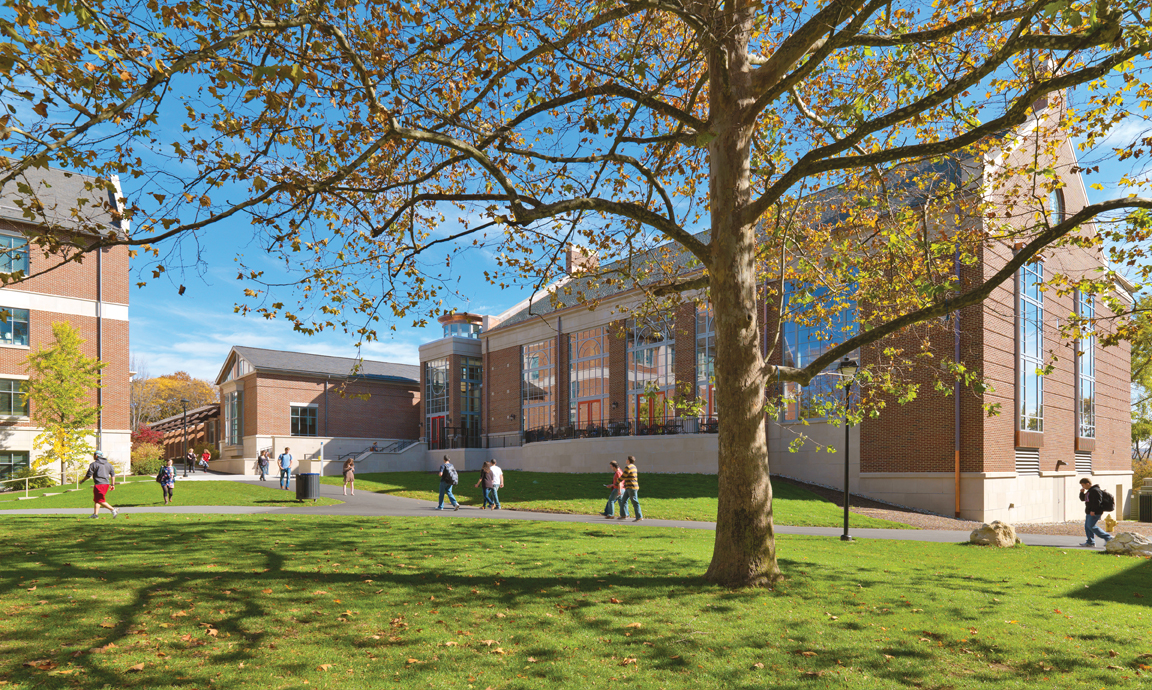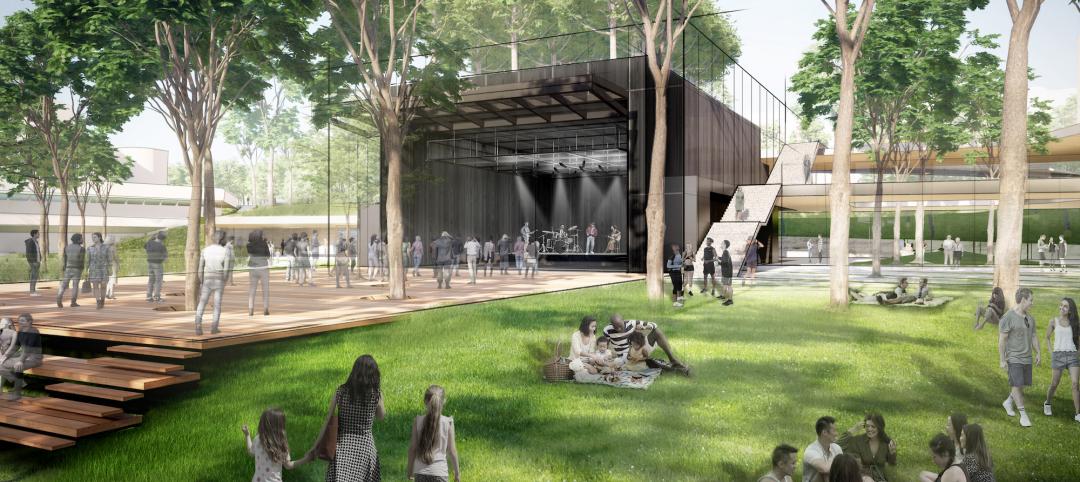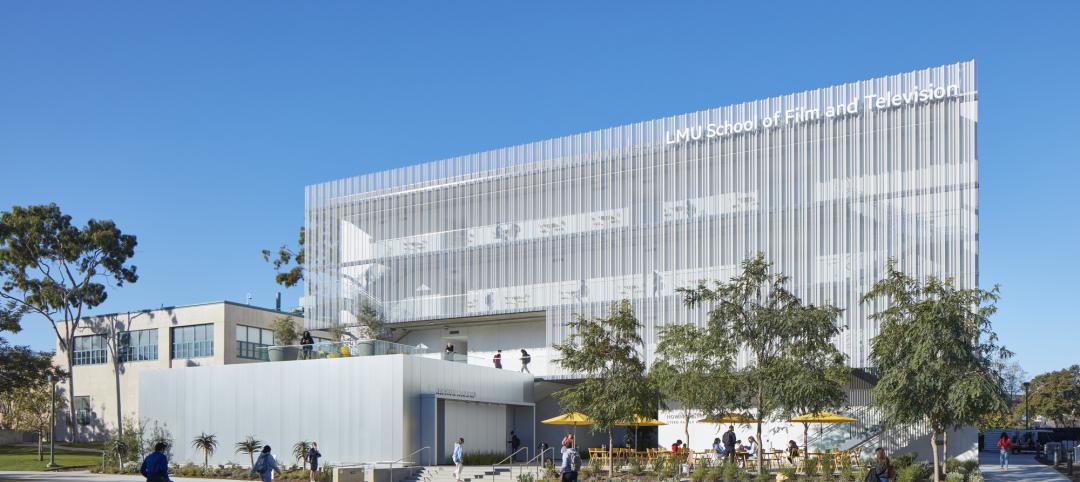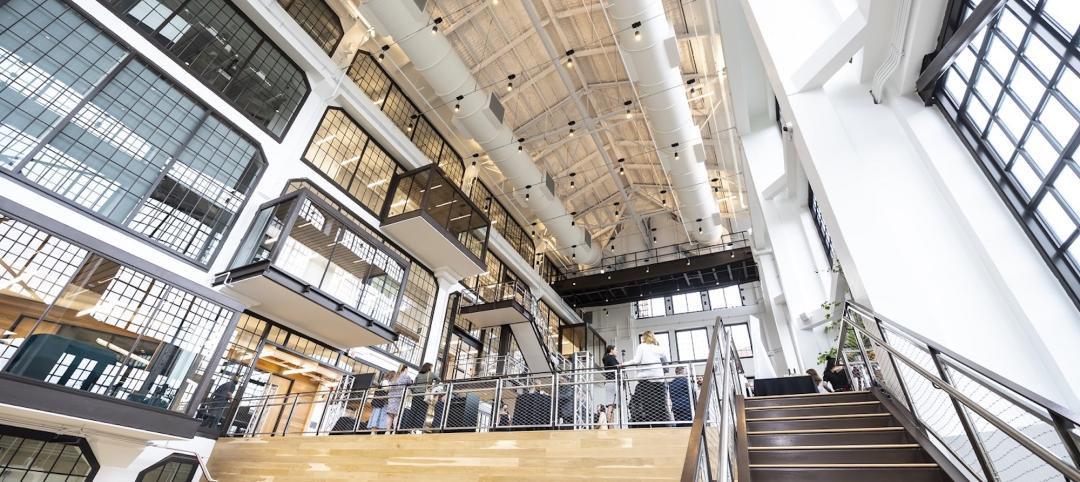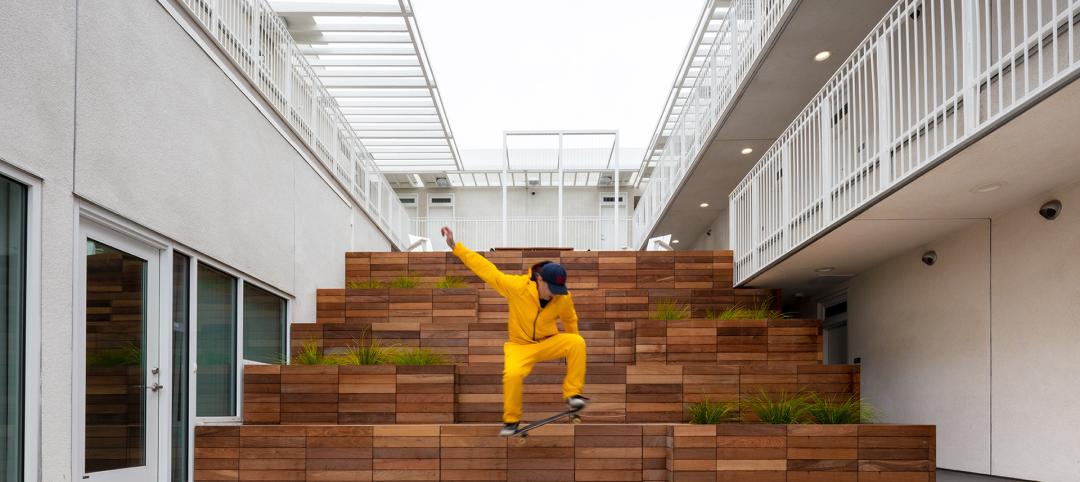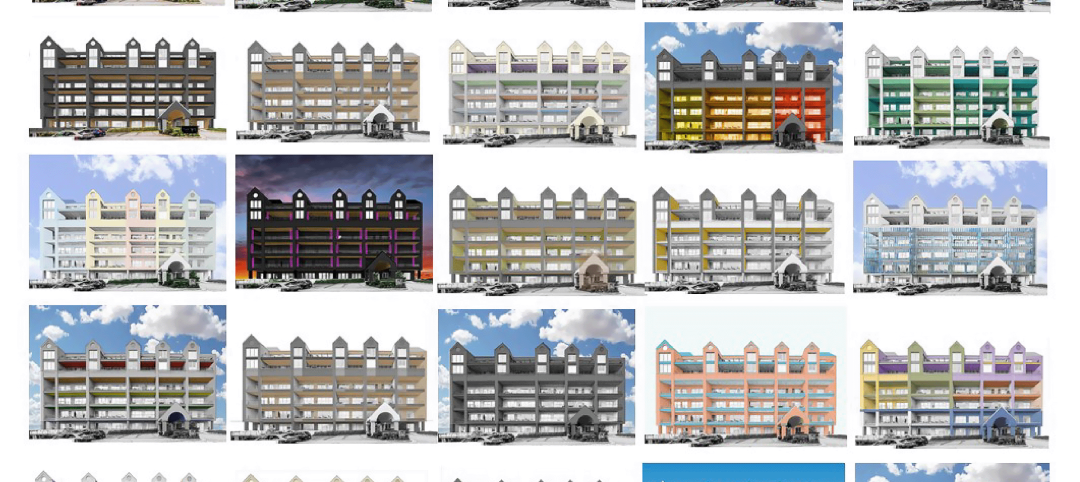At many colleges and universities, the student union serves as the focal point of campus activity. These days, campus planners are increasingly designing student unions as a multifunctional home to fuse student life and recreational activities under one roof.
Two years ago, Muhlenberg College, Allentown, Pa., embarked on a bold expansion and renovation project to dramatically upgrade the outdated Seegers Student Union.
The building was originally constructed in 1960 when enrollment just topped a thousand students. Despite previous expansions and renovations, the 66,000-sf student union was too tired, worn, and undersized to serve as a modern-day campus center for more recent needs of up to 3,300 guests per day.
Ultimately, college officials decided to transform the Seegers Student Union into a contemporary student dining and commons facility to meet the college’s growing, diverse needs.
PROJECT SUMMARY
Seegers Student Union, Muhlenberg College
Allentown, Pa.Building Team
Submitting firm: Bruner/Cott & Associates
Owner/developer: Muhlenberg College
Structural engineer: Barry Isett & Associates
Mechanical engineer: Snyder Hoffman Associated Inc.
General contractor: Alvin H. Butz Inc.General Information
Size: 70,000 sf
Construction cost: $20 million
Construction period: August 2008 to August 2010
Putting The Emphasis on Community Ideals
The Muhlenberg campus is located along a high ridge with a view of the Lehigh Valley. The architectural vocabulary reflects both English and German design traditions.
The 30,000-sf expansion and reconstruction focused on centralizing the Student Life and Student Organization offices, expanding the informal social space, and, most importantly, developing a 600-seat dining facility that could support the strong sense of community within the college.
In an effort to influence design criteria and create a sense of ownership with the Muhlenberg campus population, the Building Team relied on direct and indirect feedback with students, staff, and faculty. “We conducted a number of focus groups and hung a series of comment boards on which students wrote their suggestions, comments, and wishes for the Seegers Student Union,” says Dana Kelly, marketing director with design firm Bruner/Cott & Associates, Cambridge, Mass. “There was a lot of emphasis on the desire to ‘create a living room on campus’ that would serve as a neutral ground for all constituencies.” This factor influenced the social aspects of the design.
Senior staff members from the college served as the Steering Committee and helped clarify the project’s goals. “From an admissions perspective, it was important that the institution respond more deeply to the observances of Jewish students who make up one-third of the student body,” says Glenn Gerchman, director of Seegers Student Union. Maintaining a “strong sense of community” was also crucial. “That’s a characteristic recognized by nearly everyone who walks down Muhlenberg’s academic row,” he says.
Because the Seegers Student Union abuts the principal east-west pathway on the west end of the main quad, students, staff, and faculty were able to track construction progress. Not letting an educational opportunity pass, the Building Team created a Progress Plaza near the construction site where information about the project and its progress was continuously posted, according to Kelly.
Developing The Focal Point on Campus
The Building Team was charged with designing a facility that met a wide range of student dietary requirements and restrictions. One is the Noshery, a new kosher station that has two separate kitchens—one for meat preparation, one for dairy prep. “We believe this is the first fully integrated kosher station on a college campus,” says Kelly. “Integrated meaning that it is not segregated from the other stations like other kosher stations.”
The new food gallery also brings the kitchen out in the open. Food is prepared in a display-cooking format in front of the students, which brings food to students faster while reducing waste and labor cost.
“The response to this format has been tremendous,” says Gerchman. “The meal plan counts are up, and the students have responded favorably all around.”
The reconstructed 600-seat dining room has become a hearthstone visible from the surrounding campus. It can also host a wide variety of campus events. The Light Lounge serves as an active living room, while an outdoor terrace overlooking Brown Mall rounds out the amenities of the structure.
Designed for LEED Gold guidelines but not LEED-certified, the Seegers Student Union incorporates multiple sustainable measures: low-VOC paints and adhesives, recycled tile and carpet, renewable lumber and millwork, a spray-foam insulated building envelope, and integral air and vapor barriers.
“The new Seegers Student Union now completes a new quadrangle on the campus, providing students with an important connection to the outdoors,” says Kelly.
Seegers Student Union defines a new campus space for Muhlenberg College that reinforces the unified structure of the campus. The building balances the institutional ambitions of the college with a desire to be aesthetically and socially innovative. +
Delivery method: Design-bid-build
Related Stories
Sustainability | Jan 9, 2023
Innovative solutions emerge to address New York’s new greenhouse gas law
New York City’s Local Law 97, an ambitious climate plan that includes fines for owners of large buildings that don’t significantly reduce carbon emissions, has spawned innovations to address the law’s provisions.
Fire and Life Safety | Jan 9, 2023
Why lithium-ion batteries pose fire safety concerns for buildings
Lithium-ion batteries have become the dominant technology in phones, laptops, scooters, electric bikes, electric vehicles, and large-scale battery energy storage facilities. Here’s what you need to know about the fire safety concerns they pose for building owners and occupants.
Market Data | Jan 6, 2023
Nonresidential construction spending rises in November 2022
Spending on nonresidential construction work in the U.S. was up 0.9% in November versus the previous month, and 11.8% versus the previous year, according to the U.S. Census Bureau.
Industry Research | Dec 28, 2022
Following a strong year, design and construction firms view 2023 cautiously
The economy and inflation are the biggest concerns for U.S. architecture, construction, and engineering firms in 2023, according to a recent survey of AEC professionals by the editors of Building Design+Construction.
Performing Arts Centers | Dec 23, 2022
Diller Scofidio + Renfro's renovation of Dallas theater to be ‘faithful reinterpretation’ of Frank Lloyd Wright design
Diller Scofidio + Renfro recently presented plans to restore the Kalita Humphreys Theater at the Dallas Theater Center (DTC) in Dallas. Originally designed by Frank Lloyd Wright, this theater is the only freestanding theater in Wright’s body of work.
University Buildings | Dec 22, 2022
Loyola Marymount University completes a new home for its acclaimed School of Film and Television
California’s Loyola Marymount University (LMU) has completed two new buildings for arts and media education at its Westchester campus. Designed by Skidmore, Owings & Merrill (SOM), the Howard B. Fitzpatrick Pavilion is the new home of the undergraduate School of Film and Television, which is consistently ranked among the nation’s top 10 film schools. Also designed by SOM, the open-air Drollinger Family Stage is an outdoor lecture and performance space.
Adaptive Reuse | Dec 21, 2022
University of Pittsburgh reinvents century-old Model-T building as a life sciences research facility
After opening earlier this year, The Assembly recently achieved LEED Gold certification, aligning with the school’s and community’s larger sustainability efforts.
Multifamily Housing | Dec 20, 2022
Brooks + Scarpa-designed apartment provides affordable housing to young people aging out of support facilities
In Venice, Calif., the recently completed Rose Apartments provides affordable housing to young people who age out of youth facilities and often end up living on the street. Designed by Brooks + Scarpa, the four-story, 35-unit mixed-use apartment building will house transitional aged youths.
Coatings | Dec 20, 2022
The Pier Condominiums — What's old is new again!
When word was out that the condominium association was planning to carry out a refresh of the Pier Condominiums on Fort Norfolk, Hanbury jumped at the chance to remake what had become a tired, faded project.
Cladding and Facade Systems | Dec 20, 2022
Acoustic design considerations at the building envelope
Acentech's Ben Markham identifies the primary concerns with acoustic performance at the building envelope and offers proven solutions for mitigating acoustic issues.


